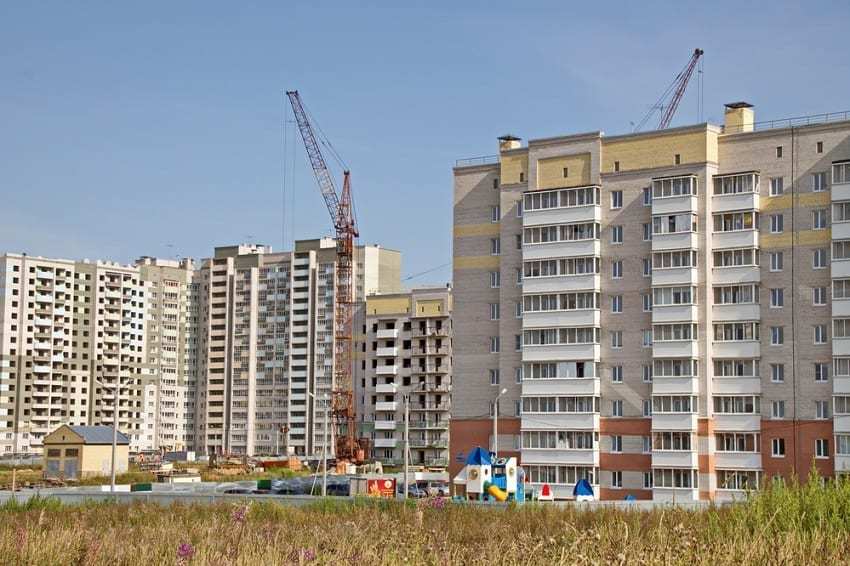The possibility that the owner of a piece of land that signs a execution works contract may desist from it, whether the construction have started or not, it is a faculty that the Law recognizes, although it solidifies or links certain effects or consequences that we are going to study briefly in this article.
The article 1594 of the Civil Code states that the owner of a plot may unilaterally desist from the performance contract, as it is established by our Supreme Court without the need for any further cause other than his own will.
What right then does the contractor have when he receives the desisting or the will of not continuing on the part of the owner of the construction? The same article mentions the concepts of payment, expenses, work and usefulness that could be obtained from it.
There can be no doubt that it is fair to reimburse expenses incurred and not paid yet.
But the most important question, and that motivates this article, is the meaning of the expression “profit that could be obtained from it”, that are the benefits or economic benefit that the contractor was going to have with the development of this contract, was the so called industrial benefit.
We must accept that the desisting by own will of the owner of the plot, causes a damage to the contractor that must be compensated. Desisting should not be confused with termination of contract for cause, since what we are dealing with here is the simple expression of the will to terminate the construction contract and the compensation that corresponds to the injured party.
In the next article of real estate and construction lawyers of Carlos Baño León, another article, we will study the contract termination or decision of the construction work’s owner to terminate and invalidate the contract for breach of contract on the part of the contractor.

As for the concept of compensation for damages in cases of desisting, it is understood by the Courts that this damage is constituted by the benefits that were expected to be received with the performance of the work, the benefit for the profit of the same and it is here at this point where there are judicial claims that our Supreme Court is solving with reiteration in this regard.
As our Supreme Court says, the application of the 15% doesn’t have to be automatic but every case must be studied. Although it is true that after reading many sentences, the most common type applied is the one of the 15%.
The relevant question is whether the exercise of desisting should be advised or whether other course of action on the subject is possible.
Don’t hesitate to contact this law office of Carlos Baño León, experts on Real Estate and Construction Law and we will advice you properly; these are cases that can become very complex and that may be for the interested party a huge worry.
In our opinion, it is not advisable to desist when the construction work has not yet started, when there has not yet been any activity carried out by the contractor because that would be as much as recognizing that without the minimum effort or work done he would receive a significant amount of money.
It must be borne in mind that in the construction works contract, the contractor receives in advance a sum of money, usually the 20% of the budgeted amount of the construction, so that the first consequence of the desisting will be that the contractor will keep this money with charge to a settlement to be made, and in which not only a percentage of compensations must be taken into account (on which for sure there won’t be any agreement between the parties) but also the reimbursement of expenses claimed by the contractor.
If we have in mind that after the signing of the execution works contract the licence is requested by the contractor and taxes are paid, which are usually very expensive, and if to that we add that a basic project will have been drafted by an architect, this will give us an idea of the expenses paid in vain by the client because this could never be refunded given that the desisting would make that the architect hired by the constructor gets paid for his project but also he won’t wish to continue. So the contractor will be forced to hire a new architect and ask for a new license of Obra Mayor (large-scale works). Therefore, this is a decision that should be thought carefully when desisting.
This situation can become even more complicated if the builder has already started the construction because to what we have said up until now, it must be added that rarely a desisting will cause the builder to simply accept to abandon the building site, until he obtains what interests him. Which will complicate the client’s life even more, which is synonymous of disagreements and lawsuits.
It causes uneasiness to think that the client claims before the Court because this situation harmful for him will be worsened and complicated with the length of time judicial lawsuits usually take.
Real estate and construction lawyers of Carlos Baño León in their wide experience in real estate law cases have had the opportunity to experience the complexity and problems that these execution works contracts reach.

Therefore, it is our opinion that desisting is a faculty of the owner of the construction that normally won’t interest him to carry out, unless the construction is very advanced, and the percentage of profit to be collected is not high (obviously what the builder has received will be deducted from that percentage) and the abandonment of the builder compensates the owner.
Our advice is that when the owner of a piece of land interested in its construction receives from the contractor a contract to be signed, the owner must be very careful and not simply accept the clauses in the contract made by the builder and should resort to a lawyer so that this expert reviews them and tries to include the necessary clauses so that if among other things the client wants to desist, he or she could do it in the best possible conditions.
In another article we will expose the most common clauses that builders usually include in their contracts for the execution of works and that the interested parties usually just sign and without thinking that they have the right to negotiate and with the result that when they don’t negotiate, they often find themselves situations in which the builder totally controls the contractual relationship with abusive clauses which are later very complicated to neutralize.
If you are in the case of negotiation with a builder or building contractor, don’t sign anything without prior study and advice from a specialist lawyer in construction law since the difference can be huge for you.
We are at your disposal and don’t hesitate to contact this Alicante law office expert in real estate and construction law of Carlos Baño León.


